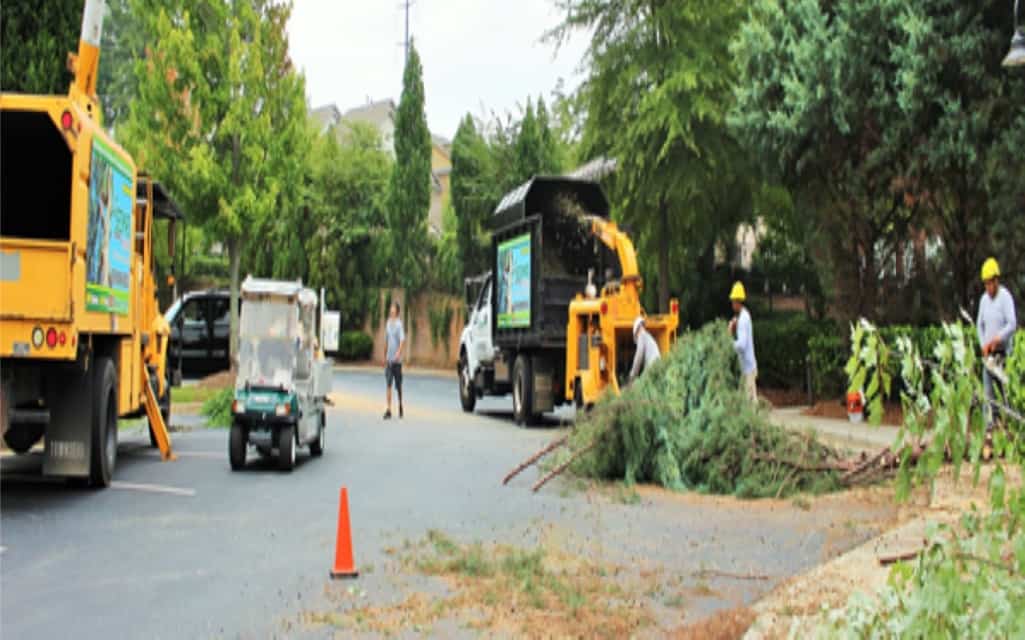Leaf composting is one of the smartest and most efficient ways of creating a nutrient-rich organic matter for your garden. In case you haven’t tried it yet, or have no knowledge about the procedure, we are here to help you get started with it. For professional help though, get in touch with a reliable and trusted Tree Service in Atlanta.
Want to know more about the dry leaves, their decaying process, various challenges involved and how to overcome them? Keep reading.
How Leaf Composting Is Beneficial?
- Good source of minerals and other nutrients required by the soil: Do you know that more than 80% of a tree’s nutrients are stored up in its leaves? No wonder, they are famously referred to as nature’s nutrient recyclers.
By committing to the lead composting procedure, you can ensure that all these minerals and nutrients do no go waste and instead are returned to the earth thus enriching it back in the process.
- Requires no investment: Since it’s your backyard or garden in which various trees are flourishing and hence, the leaves that are going to fall from them, ultimately belongs to you.
Come fall season and the whole area gets buried under the heaps of dry leaves- With a little knowledge, you can use them for creating a nutrient-rich compost for your garden and that too without spending a single dime.
You could even ask your friendly neighbour for a little favour in case you do not have enough trees in your garden- they should be more than happy to spare a few leaf bags for you.
- Rich source of carbon: The C: N ratio i.e. Carbon: Nitrogen ratio of dry leaves is between 25 – 35. This is an appreciable content value of brown which you might not find in other composting materials.
As per professionals from Tree service in Atlanta, the fastest way to create fertile and good smelling compost is to maintain C: N ratio as 25-30 parts of carbon against 1 part Nitrogen.
Challenges of Leaf Composting
- Matting issues: Leaf matting problem is often encountered when you do not shred your leaves- This could lead to the formation of an impermeable barrier thus considerably slowing down the composting process.
Hence, whenever you want to make compost out of the leaves, make sure that these are shredded first.
- Longer breakdown time: Due to the presence of a compound called lignin, leaves might take a substantial amount of time to decompose completely. Every leaf has got a varying percentage of lignin in it- the ones with a good amount of this compound could even 2 years to breakdown.
How to make Compost?
There cannot be a better use of fallen leaves than to make compost out of it. However, the process demands considerable time, space and patience from your end.
Professionals from Tree service in Atlanta, can suggest the best methodology for you by checking the volume of fall, availability of space in your garden as well as the timeline you are willing to give to the decomposition procedure.
Since all leaves are not created equal, some of them might take more time than usual to decompose than the others.
Best composting leaves: The leaves with the minimum value of lignin besides a good amount of calcium and nitrogen, are most preferred for the composting purpose. The best varieties include:
- Maple
- Ash
- Willow
- Poplar
- Fruit tree leaves
With above, it shouldn’t take more than a year to get the compost ready.
Leaves unsuitable for composting: The leaves with a higher percentage of Lignin and lower values of calcium and nitrogen, might take an endless amount of time to break down. Hence, they are not preferred for composting purpose. Some of these varieties are:
- Oak
- Beech
- Chestnut
- Holly etc. to name a few.
Also, it works best to leave out black walnut and eucalyptus as well since they contain natural herbicides which could prevent the live seeds from germinating.
Composting Process
- To
begin with, you must first shred the leaves into tiny pieces. You could use a
shredder, mower or even a garbage can with string trimmer for the process.
- Since leaves are predominantly brown, Tree service in Atlanta suggest adding a good amount of green materials like grass, kitchen waste etc. to balance the nitrogen content.
- You may add compost accelerator to expedite the composting process
- Make sure that you turn your composting pile every 1-2 weeks. This will infuse the oxygen which will further accelerate the decomposing process.
- Keep adding greens to keep the pile moist and spongy throughout the tenure.
- You may also consider covering the pile with a plastic sheet to keep it warm and also to prevent it from getting dry.
If you religiously follow this regime for a good one year or so, by the next spring, nutrient and mineral-rich compost should be ready to spread in your garden. For more information about the process and to get in touch with the field experts, visit us now at Sesmas Tree Service.



